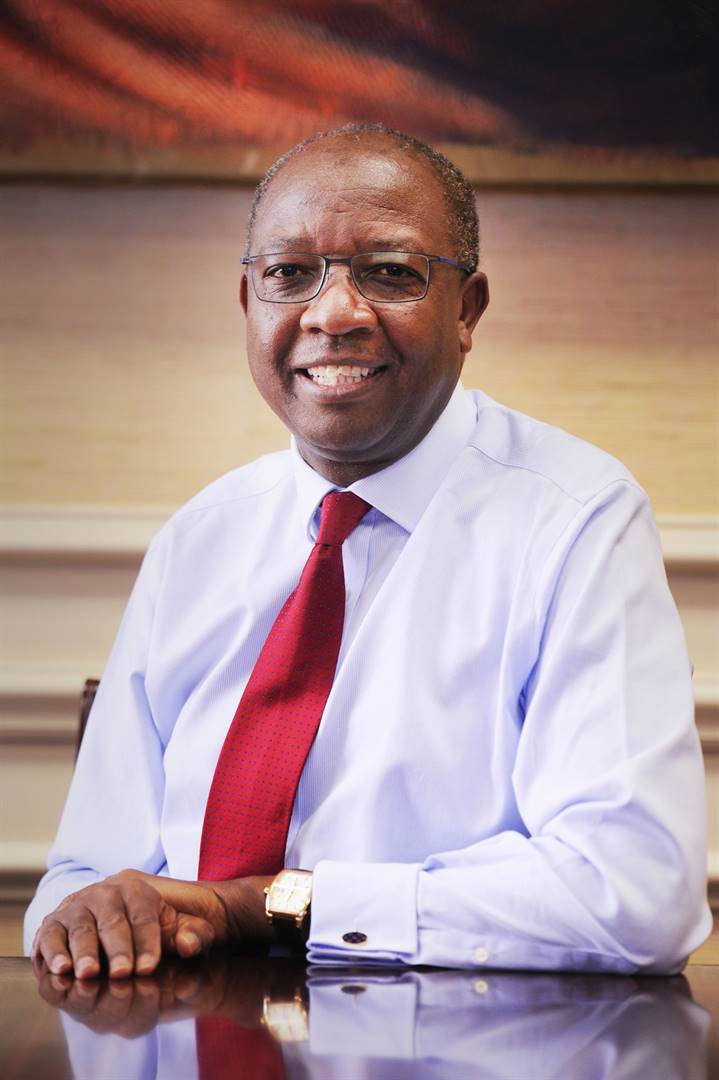
As South Africa celebrates a generation of freedom, Anglo American acknowledges its deep roots in the country and looks ahead to its contribution in the next 25 years and beyond.
Over the next five weeks experience 25 Reasons to Believe with City Press as we explore the economy, job creation, enterprise development, health, land reform, sustainability, education, technology and – most important of all – the communities
Only by getting to the core of the education system will change be effected, not by sitting on the periphery throwing money at it. This is what Norman Mbazima, the driving force behind Anglo American’s ambitious South African education programme, believes.
The years spent on the outside – reading proposals, deciding on the projects that could do the most good and then funding those projects – led the former deputy chair of Anglo American South Africa to launch one of the company’s most ambitious corporate social investment initiatives to date.
In April last year, the company partnered with the department of basic education and undertook to improve outcomes for children living around its mining operations in South Africa.
The plan is to do this “purely by supporting what government is trying to do, and by helping it do it. I believe that we can have a much bigger impact on our kids,” says Mbazima.
The numbers are ambitious. Anglo American is targeting 100 early childhood development sites, and 100 primary and secondary schools – about 70 000 pupils in total. The company has met directly with the school governing bodies, teachers and principals to understand the challenges in the targeted schools, and is inspiring the staff at the schools to take ownership of the required change.
Mbazima has been with Anglo American for 18 years. Although he officially retired on June 30, he will keep on leading the steering committee of the education programme because it’s something he is passionate about.
Mbazima received free schooling in Zambia and his tertiary education was covered by a parastatal.
Learner-focused targets include:
90% of learners aged five achieving the
minimum requirements for school readiness
90% of Grade 3 learners passing with at least
50% in numeracy & literacy
75% of Grade 6 learners passing with 50% in maths & English (first additional language)
90% matriculation pass rate, with a
50% bachelor degree pass
65% of Grade 12 learners passing with
at least 50% in maths
“It took me out of poverty and helped me get to where I am today. It takes people to another level in terms of being educated and therefore able to get a job, and also be able to look after themselves and their families. In terms of developing the nation, it’s the one thing that touches everything.
“It’s very clear that, of all the things that we do as Anglo American, the most satisfying is to be able to help the education system. It’s something that Anglo American just must do because we operate in communities. And if everything that I’ve said about development is right, then that is the one place where we can spend some of our money and do the most good – for the country, for individuals and, indeed, for ourselves.”
Mbazima was the chairperson of Anglo American’s Chairman’s Fund for “a long, long time”, and he can’t remember one meeting where funds weren’t allocated to an education project.
“The difference this time is that we thought we’d go back and just rethink about what we are doing, how we are spending our money and how we can make it significantly more effective.”
The focus has shifted from infrastructure and equipment to the core of the education system – the teachers and school management.
“Usually, when you offer help, people don’t go to the core of education, which is what we are trying to do. And we are trying to do it in support of what the education department is trying to do, rather than starting something new or separate.
“We wouldn’t be able to make it grow and replicate it. I think that we can have a much, much bigger impact purely by supporting what government is trying to do and helping it to implement its plans that much better.”
The bottom line for Mbazima is the outcomes.
“We are not educators, so we’ve had to work with partners. There are many excellent partners out there trying to improve the educational landscape in South Africa.
“I’m hoping that a programme such as the one we’ve started will be a good place for the very best service providers to come on board and make a difference in a structured way.”
Mbazima is satisfied that the project is well thought through.
“If we can get that ecosystem to work together with us, every rand that we put into this is going to have the best effect that it can possibly have.
“The basic education system was not producing the best results. Now, don’t get me wrong, I have a great deal of admiration for the department of basic education and what it is doing, where it has come from and how it is trying to improve.
“Having spent lots of time with the minister [Angie Motshekga], I have a great deal of admiration for her enthusiasm and what she is trying to do to get there. But she and I agree – we are not there yet. And I think some of the things that we were doing were not resulting in the largest number of people, especially the poorest children around our operations, getting a better educational outcome.
“If we could refocus everything towards achieving that ... that would be a really neat thing to do. And that is what this programme is designed to do.”
The programme has set ambitious targets, so it can be objectively measured over time to ensure it’s getting there.
“We have very clear targets that we’d like to achieve with the schools and the kids we will be working with over the next five years. And that’s the difference,” Mbazima says.
WHEN HELP ARRIVES
It’s a long dusty road to Mashie Primary School – more than two hours’ drive from Polokwane in Limpopo, the closest city to the school. Only once you’ve passed through places you’ve never heard of, such as Dendron and Vivo, the tar ends and, eventually, the school comes into sight.
“We are in the bush and there is no sign that there is a school here,” says the school’s principal, Freddie Maphaha.
Mashie Primary is just one school that is benefiting from the Anglo American South Africa education programme. From Mashie, the learners graduate to Moshokoa Secondary School, which is 10km away in Slaaphoek.
Both schools are benefiting from the initiative, and Anglo American has already provided training to the school’s leadership on managing the curriculum to ensure better results.
Mashie Primary has nine teachers and 275 pupils from Grade R to Grade 7, but they have been battling to beat the odds.
“The Grade R pupils do not have a teacher, so a volunteer helps. We often ask parents to contribute R5 towards the volunteer’s R1 375 monthly salary. This is already asking for a lot as most of the parents are unemployed,” Maphaha says.
The school’s current pass rate is between 75% and 80%, and Maphaha is positive that the initiative will improve the school’s performance.
And he’s not the only one. Andries Serumula, the principal of Alldays Secondary School, also faces huge obstacles.
Located about 36km from the De Beers mine in Alldays village, it has 402 pupils. Classrooms are mobile and temporary, and accommodate 20 pupils. The toilet ratio is one to 35, “meaning one toilet seat serves 35 pupils”, Serumula says.
“Our feeder school has 107 pupils in Grade 7. We are very worried about overcrowding next year. We also have a Grade 8 classroom that is ‘mobile’. The heat is unbearable when it gets hot and the opposite happens when it gets cold.”
The school was approached by Anglo American last year and things are already starting to look up.
“So far, Anglo American has appointed a physical science teacher who comes in twice a week to assist pupils in grades 11 and 12. During the school break, the teacher will work with the pupils in matric for five days to prepare them for exams,” he says.
Anglo American has also provided the school with a science laboratory and mentoring.
The school boasted a 96.8% matric pass rate last year, an improvement from the 70.4% achieved in 2017. But Serumula isn’t resting on his laurels.
“We need to focus on the quality of results as opposed to the quantity,” he says.
Selaelo Ralefeta, a circuit manager in the department of basic education, says this is not the first time that Anglo American has contributed towards improving communities.
“When I was appointed in 2008, Anglo American provided early childhood development centres with learning and teaching material. It also provided pupils with study guides, and sent them to camps where they were taught physics, mathematics, life sciences and English,” Ralefeta says.




 Publications
Publications
 Partners
Partners










